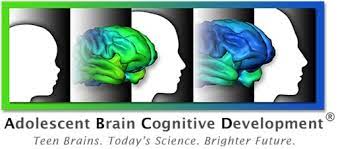Study Overview
Adolescent Brain Cognitive Development (ABCD) Study
The Adolescent Brain Cognitive Development (ABCD)℠ Study is the largest long-term study of brain development and child health in the United States and spans 21 research sites nationwide. The ABCD Study® has been following roughly 10,000 children as they go through adolescence and aims to “understand the developing brain and the many childhood experiences that shape social, emotional, intellectual, and physical growth” (abcdstudy.org). Our goal is to use this data to study the neural mechanisms related to reward processing and inhibition that characterize changes in irritability across the transition to adolescence. We plan to do this by examining clinical interviews, parent- and youth-report measures, and fMRI data gathered during the baseline time point (9-10 years old) and 2-year follow-up (11-12 years old). This project will help inform precision medicine during a crucial time of development to improve mental health outcomes related to irritability in youth. To inquire about this study, please email tendlab@sdsu.edu.

ABCD Study®, Teen Brains. Today’s Science. Brighter Future.® and the ABCD Study Logos are registered marks of the U.S. Department of Health & Human Services (HHS).
Adolescent Brain Cognitive Development SM Study is the service mark of the US Department of Health & Human Services (HHS).
